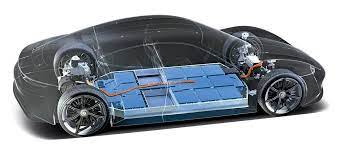
The electric vehicle (EV) battery-Laserax
STRATEGIC ASSESSMENT. Indonesia’s Maka Motors will start producing electric motorcycles next year, CEO Raditya Wibowo told Nikkei Asia, aiming to capture a share of a growing domestic market currently dominated by Chinese makers.
Maka Motors, founded in 2021 by Wibowo and Arief Fadillah — previously executives at Indonesian ride-hailing company Gojek — has focused on developing electric motorcycles for the local market. Fadillah is chief technology officer. The company has recruited experienced engineers from Japanese and German motorbike manufacturers to kick-start operations.
President Joko Widodo’s ambition of building out Indonesia’s electric vehicle supply chain is seeing another step forward with plans for a cathode plant.
Indonesian state miner Aneka Tambang, Indonesia Battery Corporation and a consortium led by South Korea’s LG Energy Solution Ltd. are building the facility as part of a $9.8 billion “grand package” to build battery production onshore, according to a statement by Indonesia’s investment ministry.
Tesla CEO Elon Musk, reportedly prefers to invest in Australia compared to Indonesia. There are several reasons that made him decide this, according to National Battery Research Institute founder Evvy Kartini. She explained that Australia is considered to have implemented the principles of clean energy from upstream to downstream.

South Korea’s trading company STX Corp. is set to build a nickel plant with an Indonesian company in the Southeast Asian country to expand its presence in the rapidly growing electric vehicle battery industry after corporate restructuring.
STX said it signed a deal to establish a joint venture with an Indonesian company but did not provide further details such as the partner’s name and stake breakdown, citing a non-disclosure agreement.
President Jokowi held a meeting with ministers at the Presidential Palace, Jakarta, to discuss comprehensive measures to accelerate the electric vehicles (EV) ecosystem as well as to increase investment in the country, Investment Minister Bahlil Lahadalia said. He noted that the government has also taken steps to push investment in electric cars.
According to Bahlil, investment from Hyundai Motor Group to build its first manufacturing plant in Indonesia is currently underway. Other automobile manufacturers, such as BYD and Wuling from China, will follow to invest in the local EV plant, he stated.
Indonesian President Jokowi is trying to set his nation on course to become a global hub of electric vehicle production. Jokowi’s drive to shift Indonesia up the value chain will be a much more complex and uncertain endeavor than its successful nickel push.
The country’s large nickel capacity has made it an attractive investment target, Makoto Tsuchiya, assistant economist at Oxford Economics, wrote in a recent report. But “there is room for further improvement to firmly establish the country in the global EV supply chain.”
The Energy and Mineral Resources Ministry has set a service fee for electric vehicle (EV) charging at public charging stations (SPKLUs). The fee amount is regulated in a ministerial decree issued to help accelerate the EV ecosystem, provide business certainty, and transparency to the public.
SPKLUs using fast-charging technology will levy a maximum fee of $1.66 (IDR25,000), while those using ultrafast charging technology will charge a maximum fee of $3.78 (IDR57,000). The fees will be charged for one-time charging.
Investors say they need better government incentives to develop the electric vehicle (EV) charging infrastructure necessary for the technology to be widely adopted in the country.
Benhur Lumbantobing, head of regulatory affairs at the Association of National Electric Vehicle Charging Businesses (APPKLI), said that investors needed better margins on electricity pricing and more efficient licensing to meet the government’s EV targets. He added that investors were seeking a reduction in the base fee for postpaid electricity bills and at least a 50 percent reduction in electricity supply connection fees.
Indonesian President Joko Widodo is trying to set his nation on course to become a global hub of electric vehicle production. That won’t be an easy task. The country’s large nickel capacity has made it an attractive investment target, Makoto Tsuchiya, assistant economist at Oxford Economics, wrote in a recent report. But “there is room for further improvement to firmly establish the country in the global EV supply chain.”
Southeast Asia’s biggest economy needs more skilled labor, deeper industrial infrastructure and more low-carbon energy supplies if it wants to produce batteries or electric vehicles in high volumes. The country will also need to offer a more stable business and regulatory environment than it has in the past, Tsuchiya said.





